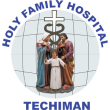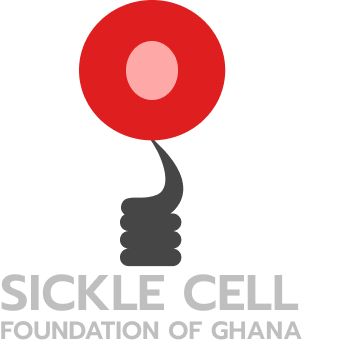Our Programs
Lorem ipsum dolor sit amet, consectetur adipiscing elit. Ut elit tellus, luctus nec ullamcorper mattis, pulvinar dapibus leo.
- Newborn Screening
- The Ahodwo Programme
New Born Screening (NBS)
NBS-SCD allows early initiation of twice-daily penicillin prophylaxis, parental health education, and comprehensive management, which results in reduced deaths. In some countries, newborn babies are screened for over twenty (20) health disorders including SCD critical to the quality of life. Ghana loses 7,500 to 13,500 of the 15,000 babies born with SCD in early childhood, every year, undiagnosed and untreated.
How NBS-SCD
started in Ghana
In 1991
Professor Kwaku Ohene-Frempong (deceased), MD (Principal Investigator), then Associate Professor of Pediatrics, University of Pennsylvania, attending Hematologist, and Director, CSCC-CHOP, led an international collaborative group and applied for a grant for a demonstration project entitled “Newborn Screening for Sickle Cell Disease in Ghana”, as part of the CSCC application of CHOP to the U.S National Institutes of Health (NIH). KATH served as the inaugural site for the project.

September 1992 – The team was informed of a successful application to be funded from April 1993 to March 1998.
· 12 December 1992 – The first Sickle Cell Clinic was inaugurated at KATH with 10 patients, in preparation for the project.
· February 13th, 1995 – NBS for SCD in Ghana was inaugurated at KATH following the training of key staff (Nurse Coordinator, Health Educator, and Laboratory Technologist) in the US; local training of staff; the Newborn Screening Laboratory was set up at Noguchi.
1998 to 2003 and from 2003-2008
The grant was successfully renewed.
·March 2008 – At the end of the NIH-funded project 255,991 babies had been screened, and 4,552 (1.8%) had been diagnosed with SCD. Of that number 3,502 had been located and 87.4% were enrolled for comprehensive care at the Kumasi Centre for SCD at KATH.

2005 – SCFG assumed the administration of NBS for the SCD project.
·2008 – The Ministry of Health, through the National Health Insurance Authority (NHIA) began funding NBS-SCD.

November 2010 – The Minister of Health launched the National Newborn Screening Programme for Sickle Cell Disease (NNSP-SCD) and inaugurated the Newborn Screening Technical Advisory Committee (TAC). TAC presented a “Draft Policy on Newborn Screening and a detailed plan which included a five-year scale-up of the pilot project to cover all babies born in Ghana by the end of 2016 for the NNSP-SCD” to the MoH.
.2011 – The MoH and the Foundation, signed a Memorandum of Understanding (MOU), appointing “the Foundation as the National Coordinating Agency for the NNSP-SCD.
Since 2016
Government funding for the Programme virtually ceased.
· At its peak, the NNSP-SCD was screening 25,000 to 30,000 at 39 sites in the Kumasi area plus its rural model site in Tikrom, near Ejisu.
· August 2020 – Received support from the Clinton Health Access Initiative to expand NBS – SCD to 13 facilities across 10regions
· January 2021 – Received support from ASH/ CONSA and started NBS – SCD at the 37 Military Hospital and the Greater Accra Regional Hospital.
The ‘Ahodwo’ Programme
As persons diagnosed with SCD grow/survive into older years, they continue to require support for treatment of the disease. The Ahodwo Programme provides part of this treatment using HU.
We offer guidance in the transition from pediatric to adult care. We monitor the implementation of HU therapy in Ghana.

What
We Do
· We work with organizations including the Ministry of Health and the Ghana Health Service to develop and implement services for people with sickle cell disease and related conditions in Ghana.
· Through a service subsidiary known as ‘The Centers for Sickle Cell Disease’, we provide educational, testing, counseling, clinical, psychosocial, and research programs in sickle cell disease and related conditions throughout Ghana.
· We work with other local and international SCD organizations, health service organizations, and governmental and non-governmental agencies to promote activities on behalf of people with sickle cell disease and related conditions.

· We manage NNSP-SCD in Ghana as an Agency of the Ministry of Health.
· We train health professionals at various sickle cell disease centers to test, diagnose, counsel, manage, and treat persons with sickle cell disease.
· We collaborate with local patient and family support groups to organize activities that seek to improve their lives.
· We work with and support the mission of the SCAG.
The Foundation works with twenty (21)
SCD centers across the country to provide special
services for SCD patients. These can be located at:











The Foundation supervises twenty-four (24)
hospitals for the NNSP-SCD in the country.












Our Services
Our services are geared towards promoting quality health care for persons living with SCD.
- These include;
- Advocacy
- Education

Advocacy
We explore opportunities in the areas of providing quality health care for persons living with SCD and related conditions in Ghana.
With a common interest in tackling SCD, SCFG, the Ministry of Health and Ghana Health Service in 2019 joined forces to partner with Novartis, a global pharmaceutical company to improve the diagnosis and treatment of SCD. The partnership was endorsed through a five-year agreement signed at the 2019 World Economic Forum in Switzerland.
SCFG, together with the Ministry of Health and the Ghana Health Service became a member of the Ghana-Novartis Public-Private Partnership in SCD.

Education
Professional health education – as the Programme Managers of the NNSP-SCD we provide professional education to health professionals at various SCD centers and health institutions. Education for health professionals focuses on screening, diagnosing, counseling, treatment, and management of SCD and related conditions.
·Public health education – with the help of health professionals, we educate families and persons living with sickle cell disease about how to manage their conditions.
.Awareness creation – we develop content for both traditional and new media to enlighten the public about sickle cell disease and sickle cell traits

